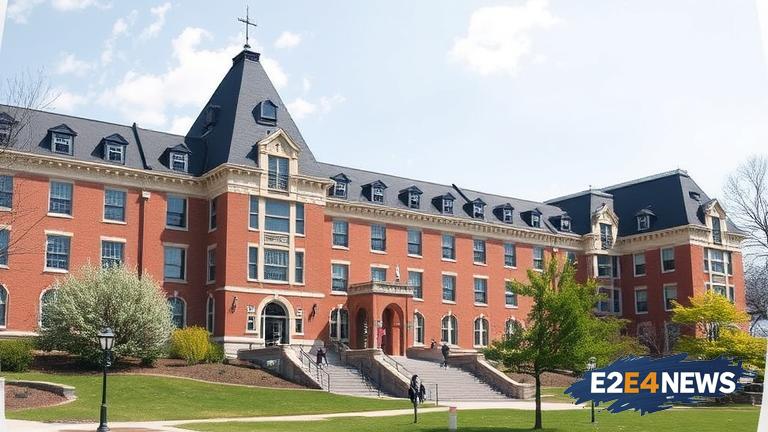The Pennsylvania State System of Higher Education (PASSHE) is facing a significant funding shortfall, which may lead to a tuition increase for students. The system, which comprises 14 state universities, is struggling to balance its budget due to declining enrollment and reduced state funding. The proposed tuition increase would affect thousands of students across the state, with some universities considering hikes of up to 5%. The increase would generate additional revenue for the system, but it may also deter prospective students from attending. Students and faculty are expressing concerns about the potential impact of the tuition increase on accessibility and affordability. Lawmakers are also weighing in on the issue, with some calling for increased state funding to support the system. The funding shortfall is attributed to a combination of factors, including declining enrollment, increased costs, and reduced state appropriations. The system has implemented cost-saving measures, such as consolidating administrative functions and reducing faculty positions, but more needs to be done to address the funding gap. The tuition increase is not a done deal, as the system’s board of governors must approve any changes to tuition rates. The board is expected to make a decision in the coming months, after considering input from students, faculty, and other stakeholders. The Pennsylvania state universities are not alone in facing funding challenges, as many public universities across the country are struggling to balance their budgets. The issue highlights the need for sustainable funding models and innovative solutions to support public higher education. The tuition increase debate is also sparking discussions about the value of higher education and the role of state governments in supporting public universities. As the situation unfolds, students, faculty, and lawmakers will be closely watching the developments and advocating for their interests. The outcome will have significant implications for the future of public higher education in Pennsylvania and beyond. The state’s economy and workforce development will also be impacted, as a well-educated workforce is essential for driving economic growth and innovation. Furthermore, the funding concerns facing the Pennsylvania state universities are a symptom of a broader issue affecting public higher education nationwide. The long-term sustainability of public universities depends on finding a balance between affordability, accessibility, and quality. Ultimately, the decision on tuition rates will have far-reaching consequences for students, families, and the state as a whole.
